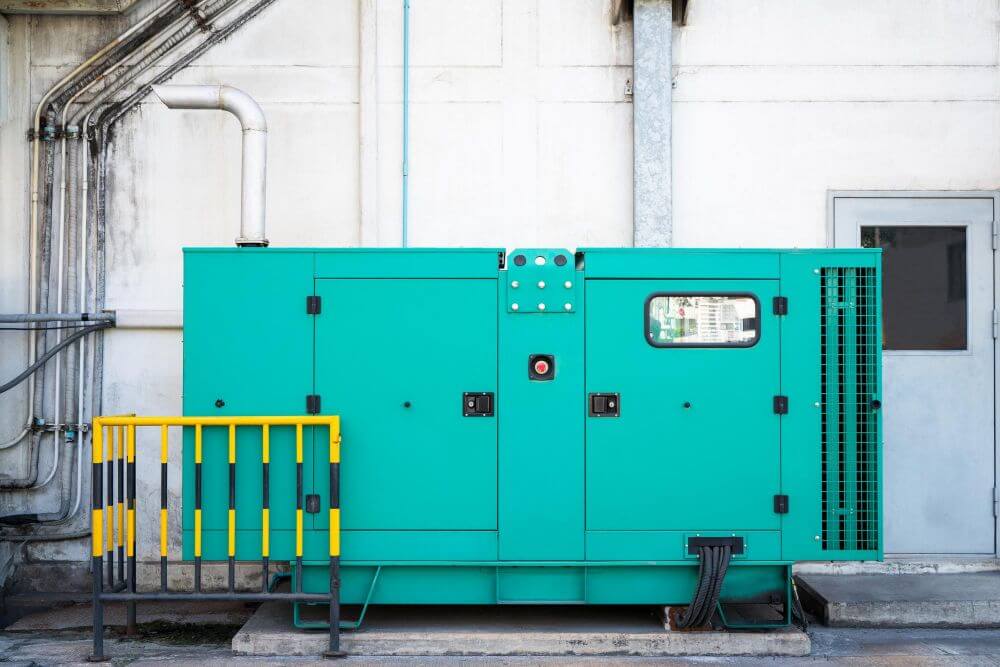Despite the challenging year of 2021, the global refrigerator market experienced rapid growth, generating revenue that exceeded 126 billion US dollars. Looking ahead to 2027, Statista’s Consumer Market Outlook estimates suggest an even more impressive future: an eye-popping 160 billion USD in generated revenue!

Image Courtesy: Statista.com
The global generator market is rising, with an anticipated compound annual growth rate of 5.79% over 2018-2026! By 2026, it’s estimated to make a significant milestone – reaching just under USD 30 billion in sales worldwide; diesel generators are leading this charge by accounting for much of its share. Ensure your business isn’t left behind – invest now and get ahead of the curve!
Read More: Top 10 Best Solar Refrigerators On Amazon Today
Generators are a crucial component when it comes to ensuring that we have power in the event of an outage. They are designed to provide temporary power when the grid is down, vital when access to electricity is critical. However, one question often arises whether or not generators can damage refrigerators. In this article, we’ll explore the relationship between generators and refrigerators and see if there’s any truth to the idea that generators can damage refrigerators.
How Do Generators Work?
Before we dive into the potential effects of generators on refrigerators, it’s essential to understand how generators work. A generator is essentially an engine that converts mechanical energy into electrical energy. When you turn on a generator, the engine starts running, which turns a rotor inside the generator. This rotation creates a magnetic field that generates an electrical current. The electricity generated is then sent through an electrical circuit and is available for use.
Various fuels, including gasoline, diesel, propane, and natural gas, can power generators. They come in different sizes and capacities, depending on the power needs of the user.

How Do Refrigerators Work?
Now that we understand how generators work, let’s take a closer look at refrigerators. Refrigerators are appliances that are designed to keep food and other perishables cool. They work by removing heat from the refrigerator and expelling it to the outside.
The refrigeration cycle in a refrigerator is based on a thermodynamic principle called the vapor compression cycle. This cycle involves four main components: the compressor, the condenser, the evaporator, and the expansion valve. The compressor compresses a refrigerant gas, which raises its temperature and pressure.
The hot, pressurized gas then flows through the condenser, releasing its heat to the surrounding environment, causing it to cool and condense into a liquid. The liquid refrigerant then flows through the expansion valve, where it expands and cools, turning into a gas again. This cold gas flows through the evaporator, absorbing heat from inside the refrigerator and cooling it down. The gas returns to the compressor, and the cycle starts again.
Can Generators Damage Refrigerators?
So, can generators damage refrigerators? The short answer is that they can, but it’s uncommon. This is because generators produce what is known as “dirty” or “unstable” power.
When the engine in a generator is running, it produces an alternating current (AC) waveform.
This waveform is unstable and can fluctuate, causing power surges and drops. These fluctuations can cause damage to sensitive electronic devices such as computers, TVs, and refrigerators. The electrical components in these devices are designed to operate on a specific voltage and frequency, and if that voltage or frequency fluctuates, it can cause damage.
Additionally, when a generator is started, it can produce a significant surge of power, known as an inrush current. This surge of power can be several times the normal operating current of the appliance, and it can cause damage to the compressor in a refrigerator.
However, not all generators produce unstable power. Some high-quality generators are designed to produce a clean and stable power output, essential for powering sensitive electronics. These generators use inverter technology to produce a stable AC waveform safe for electronic devices.
If you’re using a generator to power your refrigerator, it’s essential to ensure that it is designed to produce clean and stable power. You can check the generator’s specifications to see if it’s designed for use with sensitive electronics. Additionally, you can use a power conditioner or surge protector to regulate the power output from the generator, ensuring that it’s safe for your refrigerator.

Another factor to consider when using a generator to power a refrigerator is the size and capacity of the generator. Refrigerators require a significant amount of power to operate, and if the generator you’re using is not powerful enough to handle the load, it can cause damage to the compressor.
To determine the generator size you need, you’ll need to calculate your refrigerator’s starting and running wattage. The starting wattage is the amount of power the refrigerator requires when it’s first turned on, while the running wattage is the amount of power it requires to operate continuously. This information is usually on the refrigerator’s data plate or user manual.
Once you have this information, you can select a generator with a capacity that exceeds your refrigerator’s starting and running wattage. This will ensure that the generator can handle the load and won’t cause any damage to the refrigerator.
It’s also important to note that refrigerators are not the only appliances that generators can damage. Other sensitive electronics, such as computers, televisions, and medical equipment, can also be damaged by unstable power from a generator. If you’re using a generator to power sensitive electronic devices, taking the necessary precautions to protect them is essential.
Final Words: Can a Generator Damage a Refrigerator?
In conclusion, generators can damage refrigerators, but it’s uncommon. The unstable power produced by some generators can cause power surges and drops that can damage the compressor in a refrigerator. However, high-quality generators that produce clean and stable power can be used safely to power refrigerators and other sensitive electronic devices.
When using a generator to power a refrigerator, it’s essential to ensure that the generator you’re using is designed for use with sensitive electronics and has enough capacity to handle the load. It’s also essential to take the necessary precautions, such as using a power conditioner or surge protector, to protect your refrigerator and other sensitive electronics from damage.
In summary, while generators can pose a risk to refrigerators, with the proper precautions and equipment, they can be used safely to provide power in emergencies.




